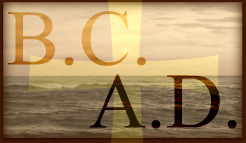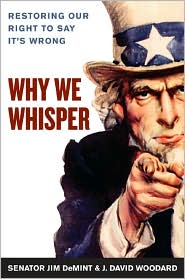Its amazing how a great film like September Dawn has gotten such intense criticism for so-called "Mormon bashing." The libs attack a film for "Islam bashing" if a film exposes Islam and will also attack a film for criticizing Mormonism.
Here is an article written by Wikipedia on the criticism (and some praise) of the September Dawn film.
The film has been described by various critics (most or all of whom are not LDS) as "the year's first honest-to-goodness exploitation flick,"[9] as "carrying an anti-Mormon agenda,"[10] as "some sort of attack piece on the Mormon religion,"[11] as "little more than wild-eyed anti-Mormon propaganda,"[12] as "a stridently anti-Mormon and cliché-heavy melodrama,"[13] as "unbelievably ugly and an insult to Mormons,"[8] as a "Swift Boating of Mormonism that advocates the religious intolerance it’s supposedly condemning,"[14] as "clearly anti-Mormon,"[15] as an "anti-Mormon broadside" that is "certain to fan the flames of hatred toward America's largest homegrown religion and continue the persecution that terrified the original Mormons."[16]
The movie has "the chilling certitude of the self-righteous" that goes beyond "mockery" and is "practically a call to jihad [against Mormons]."[17] It "equates the institution of the Mormon church with Islamic extremism at every opportunity,"[18] it is "propaganda pure and simple,"[19] is "filmmaking at its worst...full of propaganda,"[19] and it "goes way beyond history into the realm of speculation, rumor, myth and gossip."[12] Critics further state that the movie "feel[s] like blatant propaganda,"[13] and that there is an "unmistakable air of evil about this enterprise, and not just an atrocity the Mormon church caused to happen 150 years ago"[17] and its negative portrayal of Mormons is "unsubtle (in the manner most closely associated with Dr. Goebbels)."[12]
Not all reviews however have been completely negative. Boo Allen of the Denton Record-Chronicle gave the movie 3 out of 5 stars, saying that "director Christopher Cain renders a suspenseful, gripping tale."[20] Linda Cook of the Quad-City Times calls the movie "interesting."[21] Ted Fry of the Seattle Times writes that the movie is a "mix of poetry and polemics" that despite "theocratic elements that come unnervingly close to the spirit of Mormon-bashing" is nevertheless "a mildly effective dramatic tale of period Western strife."[22] Pete Hammond of Maxim gives the movies 2½ stars, saying that Cain has made "a pulse-pounding movie experience reminding us that a terrorist act can happen anywhere, anytime, by anyone."[23] David Tianen of the Milwaukee Journal Sentinel writes that the script's "great strength" is that Voight's character, Samuelson "is a zealot who behaves logically within his own belief system" in that he believes in "a theology that sees non-Mormons as wicked and degenerate." Consequently, "when Bishop [Samuelson] says things like 'May these children of Satan go to hell,' or, 'We have been honored above all others to be the chosen instrument of death," the hatred is more than mere craziness.[24]
In a piece written for FrontPage Magazine, Ken Eliasberg states that: "I found the film to be artistically pleasing, theatrically well done, and, based on my less-than-exhaustive research, historically correct. [...] While the Mormon hierarchy denies any effort to directly or indirectly sabotage the film, it seems possible much of the criticism dealing with the film is derived from some common blueprint. [...] I hope that this notion is mistaken, and that there is no effort on the part of the Mormon establishment to do this film in. If there is such an effort, I have to believe it emanates from certain individuals who are acting on their own, who have so little faith in the power of their religion that they think a mere film about one isolated historic incident could do it harm."
Now here is a Wikipedia article on the criticism of the anti-Jesus film The Last Temptation Of Christ:
The film has been supported by scholars, film critics and some religious leaders. In his defense of the movie, noted critic Roger Ebert writes that Scorsese and screenwriter Paul Schrader:
“ paid Christ the compliment of taking him and his message seriously, and they have made a film that does not turn him into a garish, emasculated image from a religious postcard. Here he is flesh and blood, struggling, questioning, asking himself and his father which is the right way, and finally, after great suffering, earning the right to say, on the cross, 'It is accomplished.' ”
Writers at NNDB.com claim that "Paul Schrader's screenplay and Willem Dafoe's performance made perhaps the most honestly Christlike portrayal of Jesus ever filmed."
In recent years, the film has been cast in a more positive light within the Christian community. Some conservative Christians groups (many of whom initially attacked the film) have reexamined it and found it an acceptable hypothesis on what it might have been like for Christ to be both fully human (subject to all of man's weaknesses) and fully God (perfect and omnipotent).[citation needed] Promise Keepers is the most notable conservative Christian group to recently come out and defend this interpretation of Christ, and acceptance of The Last Temptation of Christ seems to be growing in many Christian communities and organizations.
Some Christian scholars acknowledge that maintaining equilibrium between these two contrasting natures might have been as difficult as The Last Temptation of Christ depicts, and that the notion is even suggested in the Gospel of John when Christ admits, "I have come down from heaven, not to do My own will, but the will of Him who sent Me" (chapter 6). In the case of Kazantzakis's and Scorsese's Christ, there is a notable difference between Christ's will and the will of his Father; yet driven by his love for mankind and his devotion to his Father, Christ constantly denies his own will in order to fulfill his divine mission as Savior.
However, some Christians, along with people of other faiths, retain a negative view of the film. Conservative film critic Michael Medved (who is Jewish) has an extreme dislike of the film for its biblical inaccuracy, especially in what he considers its portrayal of Judas Iscariot as braver and wiser than Jesus.
When The Passion of the Christ was released in 2004, Scorcese's film was mentioned very often when compared to Mel Gibson's, mostly for the portrayals of Judas Iscariot and Pontius Pilate and also in analysis of how the 2004 film was an enormous blockbuster while the 1988 film didn't do well at the box office even though both were highly controversial. One[citation needed] article said that Gibson hated the 1988 film. In another article[citation needed], Scorcese said in general terms that his film had a different aim than Gibson's and wanted to inspire different reactions.
On Rotten Tomatoes.com, the film rating website, the picture had reached a rating of 81%, with an average rating of 7.2 out of 10 as of July 2008 [5].
Tuesday, August 19, 2008
Subscribe to:
Post Comments (Atom)











No comments:
Post a Comment